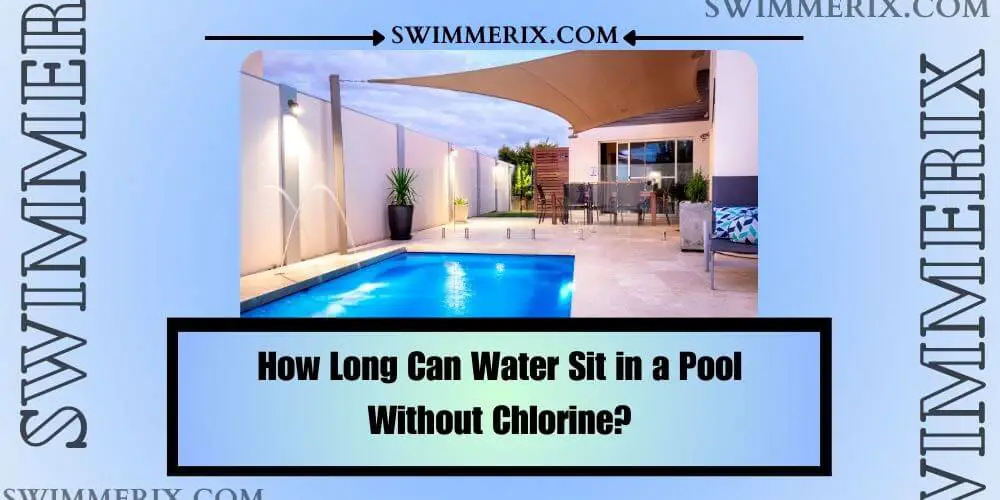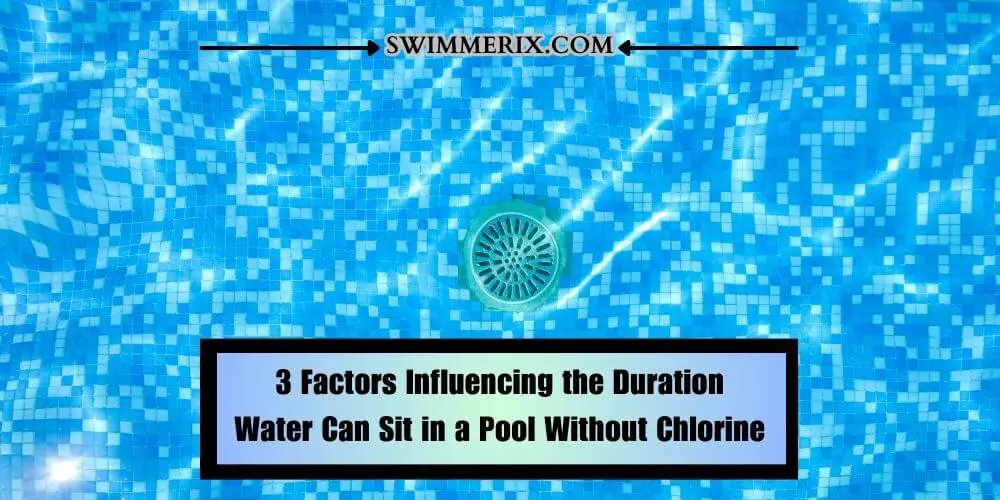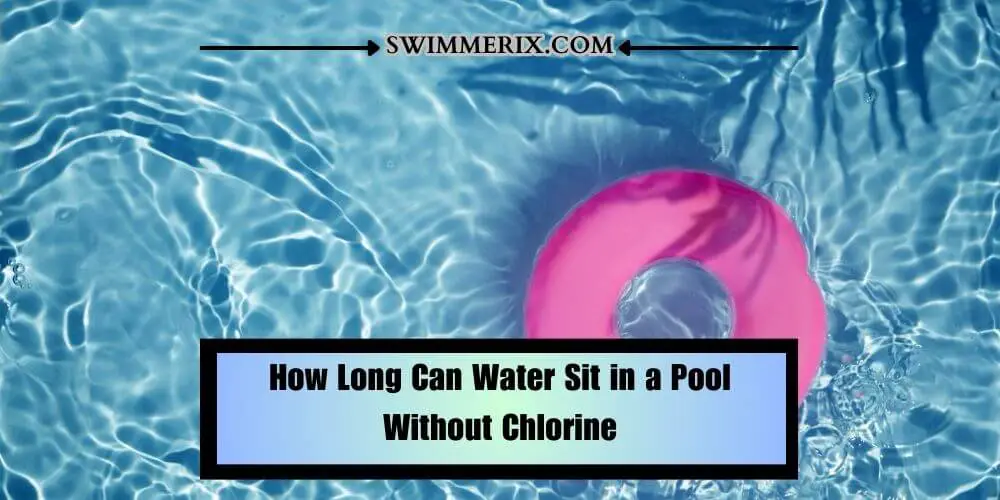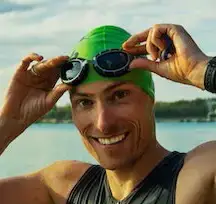
We all know how important chlorine is to treat pool water & eliminate harmful bacteria, algae, & other microorganisms. When maintaining a clean & healthy pool, chlorine plays a crucial role. But what happens if you leave your pool water & untreated for ten days?
You may wonder, ‘How long can water sit in a pool without chlorine’ before it becomes a breeding ground for bacteria? In this article, you will not only learn ‘how long can water sit in a pool without chlorine’ but also the factor that may influence the duration of water being able to sit in a pool without chlorination & potential risk of not using chlorine maintenance.
I’ll also share some practical tips to help you keep your pool water clean & healthy during extended periods without chlorine. But before I tell you ‘how long can water sit in a pool without chlorine,’ let’s understand the factor that may influence the duration of water in a pool without chlorine.
3 Factors Influencing the Duration Water Can Sit in a Pool Without Chlorine

As I told you, there are a few factors that you need to consider to determine how long water can sit in a pool. Therefore, let’s take a closer look at all these factors.
Environmental Factors
Regarding the environmental factors, you need to consider the temperature, sunlight, and weather conditions. You must know that warm temperature & hot weather tends to be an ideal condition that accelerates the good growth of bacteria & algae in pool water, especially if the water is stagnant.
You must know that high temperatures create an ideal breeding ground for microorganisms, including bacteria, shortening the time water can remain without chlorine. In addition, sunlights also play a role by breaking down the chlorine.
The UV rays coming from the sun will dissipate chlorine levels very quickly, reducing its effectiveness. It would help if you considered investing & installing a proper pool cover. Also, you should know that prolonged exposure to sunlight without replacing replenishing chlorine will significantly impact the water quality.
Also Read This Intriguing Topic: Why Pool Won’t Hold Chlorine!
Pool-Specific Factors
Another thing that you need to consider is your pool size & volume. The larger your pool is, the more water it will hold and the longer it takes for bacteria & algae to multiply to harmful levels.
If you have a smaller pool, it is likely to experience more rapid deterioration without chlorine. Besides that, you need to consider the filtration system’s efficiency. Ensure you maintain a well-functioning filtration system to help remove impurities & debris from the water, making it crystal clear & healthy for the swimming experience.
An inefficient filtration system will also extend the duration of water without chlorine. Lastly, pay attention to the cleanliness of the water as well. From time to time, you will have to clear your pool of leaves & other organic matter that may accumulate & act as a source for bacteria & algae. Note that this kind of debris presence can fasten water quality degradation very rapidly.
Also Read: Baquacil vs. Chlorine
Usage Patterns
Indeed, it would help if you also considered the usage pattern of your pool. If you use your pool regularly, it will introduce more back containments like sweat, urine, and body oil. You should know that frequent pool usage requires more diligent chlorine maintenance to prevent the buildup of harmful bacteria.
Also, you need to consider the number of swimmers & their hygiene habits. The hygiene practices depending on the number of people will also influence the rate of bacteria introduction to your pool.
This is why taking a proper shower before & after entering the pool is recommended to avoid exposure to bacterial contamination. Also, you should avoid swimming with open wounds to minimize bacterial contamination.
Related Topic: How Much Liquid Chlorine Do You Need for Your 15000 Gallon Pool
3 Effects of Prolonged Absence of Chlorine in Pool Water
Suppose you have been continuously neglecting chlorine maintenance & allowing your pool water to sit for an extended period. In that case, it will lead to various complications that may compromise the water quality while posing health risks to swimmers. Below, I am mentioning some of the effects of prolonged absence of chlorine that you need to consider.
- Bacterial Growth & Potential Health Risks: If you don’t pay attention to chlorine maintenance to keep the bacteria in check, harmful pathogens will multiply rapidly in your pool water. You must know that these bacteria can cause infections, gastrointestinal problems, skin rashes, and respiratory issues.
- Algae Formation & Discoloration: You might already know that algae thrive in the absence of chlorine & may multiply rapidly if the water temperature is warmer. It will further lead to the formation of green or brown patches on your pool surfaces. I particularly hate algae growth because it affects aesthetics and creates a very slippery & unsafe environment to swim in.
- Increased Risk of Waterborne Diseases: There are also many, many types of waterborne diseases like cryptosporidiosis, caused by the parasite Cryptosporidium, which spreads through untreated pool water. You should know that these parasites are highly resistant to chlorine, making chlorine maintenance more crucial to prevent outbreaks.
How Long Can Water Sit in a Pool Without Chlorine

The duration water can sit in a pool without chlorine particularly depends on the factor discussed earlier in the above section. However, below, I am giving you some general guidelines that can help you determine the duration.
Residential Pools
First of all, make sure that you are maintaining & monitoring chlorine levels regularly within the recommended range, especially in the case of residential pools. Most residential pools have a chlorine level requirement of 1-3 parts per million.
Also, ensure that you are testing the chlorine using reliable testing kits, which must be easily available at your nearby pool supplies store to measure chlorine accurately. Generally, residential pools can maintain water quality for about a week without chlorine under normal conditions.
However, this time frame will also vary depending on sunlight exposure, temperature, and pool use. Therefore, make sure that you are regularly monitoring & performing visual inspections of water clarity & cleanliness to determine how to replenish chlorine levels, as these are crucial indicators & part of maintenance.
Commercial & Public Pools
When it comes to commercial & public pools subject to Regulation & health department guidelines with specified chlorine maintenance standards, it is important to consider the safety & well-being of the pool users.
Therefore, being a responsible pool operator, you must adhere to these regulations & conduct regular water quality tests. Also, make sure to consider the usage of the pool. Since commercial & public pools tend to experience high usage and a potential health risk, you must provide more vigorous chlorine maintenance to keep contaminants & bacteria at bay. You must also use an automated system or employ professional Maintenance services to ensure consistent chlorine levels & water quality.
How to Maintain Pool Water Quality During Extended Periods Without Chlorine
Even though chlorine is said to be the most commonly used sanitizer, many other alternative methods exist to maintain poor water quality for an extended period without chlorine treatment. Below I’m mentioning a few methods to help you keep your water quality optimal during extended periods without chlorine treatment.
Alternative Sanitization Methods
Saltwater Systems
You already know about the saltwater system. If not, then you should know that salt water uses a chlorine generator that usually converts salt into chlorine with the help of an electrolysis process. Even though saltwater will still contain chlorine, the levels will be lower & require less maintenance.
Also Read: How to Tell If a Pool Is Saltwater or Chlorine
UV Sanitation
Another great system to keep your water crystal clear & free of bacteria & other microorganisms is the UV sanitation system. As per National Institutes of Health, Uv sanitation systems use ultraviolet light to kill bacteria and other organisms while supplementing chlorine. In some cases, UV sanitation systems also act as the primary method of pool maintenance.
Proper Filtration & Circulation
Cleaning Filters Regularly
Another thing you can do to improve the water clarity is regularly cleaning & maintaining the pool filters. A well-functioning pool filter will efficiently remove debris and impurities from the cold water. If the filter is dirty or clogged, it will hinder the filtration contributing to poor water quality.
Related: Cost to Replace Sand in Pool Filter
Ensuring Adequate Water Circulation
As I told you earlier, algae & bacteria are known to thrive well in stagnant water. Therefore, promote proper water circulation to prevent stagnant areas where bacteria & algae may thrive. I will advise you to run the pool pump for an extended period & adjust the return jets to help maintain uniform water movement.
Also Read: Pool Pump Works on Recirculate but Not on Filter
3 Tips for Pool Owners During Extended Periods Without Chlorine
Below are three of my favorite tips that may help you keep your water as clean as possible during extended periods without chlorine usage.
- Covering The Pool: I suggest you use a pool cover that minimizes exposure to sunlight & prevents the debris from falling into the water. This will further help you reduce the rate of bacteria growth and keep the pool clean longer without needing chlorine maintenance.
- Removing Organic Matter & Debris Regularly: You must remove organic matter & debris regularly by skimming the pool surface & vacuuming the pool floor to ensure no leaves, insects, or other debris are present. It will also prevent the buildup of organic matter that may deteriorate the pool water quality.
- Monitoring Water Quality: Since regular testing will help you ensure your water remains safe & free of harmful bacteria, use a reliable testing kit or seek professional pool service.
Conclusion
You should know how long water can sit in a pool without chlorine. Since maintaining chlorine level is very important to preserve water quality & ensure a safe swimming environment, you should only leave your pool water for a short time with chlorine treatment.
Without proper sanitation, the pool water will be very harmful to swimming. Even though water can sit in a pool without chlorine for a limited period, the above factors may influence the duration and the potential risk associated with neglecting chlorine maintenance.
To make an informed decision about the duration of water that can sit in a pool without chlorine, I will advise you to consider environmental factors and usage patterns. I have given my best to give you all the information around the question of how long water can sit in a pool without chlorine.
If you find the article helpful, then consider sharing it. Your share will help many people learn the factors influencing how long water can sit in a pool without chlorine. Do check my other helpful guide on pool care & maintenance. See you in the next post, till then, take care & goodbye.

Hi, This is Josh. I am a former competitive swimmer and current fitness enthusiast.
I created this site to share my love of swimming with the world!
